Schedule & Calendar
J-Term with Dr. Stephen Wellum
An online course beginning January 5.
Apologetics: Making Sense of the Bible
Apol 303/323 (3 Credit Hours)
A study of the nature of biblical theology and systematic theology and their organic relationship to each other as theological disciplines. Special focus is on a theological reading of Scripture, as practiced by evangelicals today. The course will discuss various biblical-theological systems, including covenant theology, dispensationalism, and progressive covenantalism, and think through their various theological implications for Christian mission in the world. The course will help Christians focus on biblical answers to various perennial theological debates from Scripture’s own interpretative structure.
Winter 2026 – Begins January 12
Old Testament Biblical Theology B
BibTh 203/223 (3 Credit Hours)
This course is designed to be an introduction to the Old Testament Scriptures, the first three–quarters of the Christian Bible. The emphasis will be placed upon
understanding the text in its historical, cultural and canonical contexts and its underlying theology. Matters such as setting, date, authorship, structure and content, as well as interpretive problems, will be considered, but the main emphasis will be on trying to discern the theological structure of the Old Testament in light of its meta–narrative. One of the major Jewish sequence of books will be followed, since this was probably the order of the oldest arrangement of the books, and formed the Bible of Jesus and the earliest church. This sequence begins with Genesis and ends with Chronicles. My intent for this course is to help you get an overview of a very different place and culture and time, and to help you use this context to understand the Old Testament Scriptures! So welcome to the journey, a journey like no other. It begins with God’s command to create light in Genesis 1 and it ends with a command to rebuild the temple in 2 Chronicles 36, and so to fill the world with the light of His Presence.
Church History A
CHist 103/123 (3 Credit Hours)
The Book of Daniel
Dan 103/123 (3 Credit Hours)
This course is designed to introduce the student to the Old Testament book of Daniel. This ancient prophetic book is the Old Testament equivalent to the New Testament book of Revelation. Because of its apocalyptic nature the book has suffered at the hands of some interpreters in the church whose treatment of Daniel turns it into a form of Christian science fiction. But this is a serious mistake. Daniel, like the Bible of which it is a part, is about God’s reign in his Son, the Lord Jesus, and the salvation that is a critical component of that reign. The aim of this course will be to highlight these vital aspects of Daniel.
Principles & Methods of Teaching
Teach 103/123 (3 Credit Hours)
In this course, we will examine the qualification and function of a teacher, the nature and needs of the student, the teaching–learning process, and the preparation and presentation of a lesson. Students are required to be involved in a teaching–learning ministry in a local church during this course.
The Worshipping Church
Worsh 103/123 (3 Credit Hours)
This course is a study of the Biblical foundations, history and practice of planning and leading services of corporate worship in the gathered church. It is an intensely practical course, designed to sharpen students understanding of elements and structures of Christian worship, primarily reflecting the practices of Free (non–liturgical) churches. Students will grow in their understanding of the relationship of scripture to corporate worship, and of the importance of worship in the life of the believer and the local church.
Homiletics A
Hom 103/123 (3 Credit Hours)
This fundamental course moves the student from the biblical text to the basic structure and components of an expository sermon based upon a variety of genres. An emphasis is also placed upon the man and the message.
Systematic Theology IV
SysTh 403/423 (3 Credit Hours)
This course is designed to study what the scriptures teach about the church and the Holy Spirit, or what is known in systematic theology as ecclesiology and pneumatology respectively. These are critical areas of biblical truth that must be understood properly if Christians are to serve God effectively in our generation. In this course we will approach these topics biblically and systematically paying close attention to the redemptive development of these themes as we move through the biblical canon to their fulfillment in Jesus Christ.
Life of Christ
LoC 103/123 (3 Credit Hours)
A study of the life of Jesus in the Gospels with special attention to significant patterns and themes, problems of interpretation, critical methods of study, and promising approaches to the texts.
NT Biblical Theology II
BibTh 403/423 (3 Credit Hours)
This course seeks to canvass the major events and motifs of the New Testament revelation, including such topics as the theology of Paul, Hebrews, General Epistles, and Revelation. The introduction will survey the nature of biblical theology, and the different ways NT Biblical Theology is understood in contemporary
theological studies. A combination of lectures, personal work, and readings is intended to guide you in understanding the NT content and theology. Class lectures focus on theological issues.
Please note this is not a New Testament survey class. Students are expected to be familiar with the biblical text, as well as with issues pertaining to authorship, background issues, critical issues, and the like.
Hebrew Grammar II
Heb 223 (3 Credit Hours)
A thorough knowledge of Biblical Hebrew is essential for understanding the Old Testament and proclaiming its message in the church today. This course is designed to enable students to acquire a basic reading knowledge of Biblical Hebrew prose and will lay a foundation for future study of Biblical Hebrew syntax, including intermediate to advanced prose and poetry.
Hebrew Syntax and Reading II
Heb 423 (3 Credit Hours)
A thorough knowledge of Biblical Hebrew is essential for interpreting the Old Testament in its social and cultural contexts and understanding its applicability for the church today. This course is designed to provide the tools necessary to competently translate any portion of the Hebrew Bible.
Greek Grammar II
Grk 223 (3 Credit Hours)
A thorough knowledge of Biblical Greek is essential for understanding the New Testament and proclaiming its message in the church today. This course is designed to enable students to acquire a basic reading knowledge of Biblical Greek prose and will lay a foundation for future study of Biblical Greek syntax, including intermediate to advanced texts.
Greek Syntax and Reading II
Grk 423 (3 Credit Hours)
Exegesis from the Greek text is the proper foundation for the proclamation of the New Testament’s message. Students who have completed preliminary studies in the mechanics of Koine Greek will continue to sharpen and enlarge their exegetical skills in this course. Attention will be given to applying the rules of grammar and syntax while recognizing the nuance of idiom and historical context as students study the Epistle to the Galatians.


